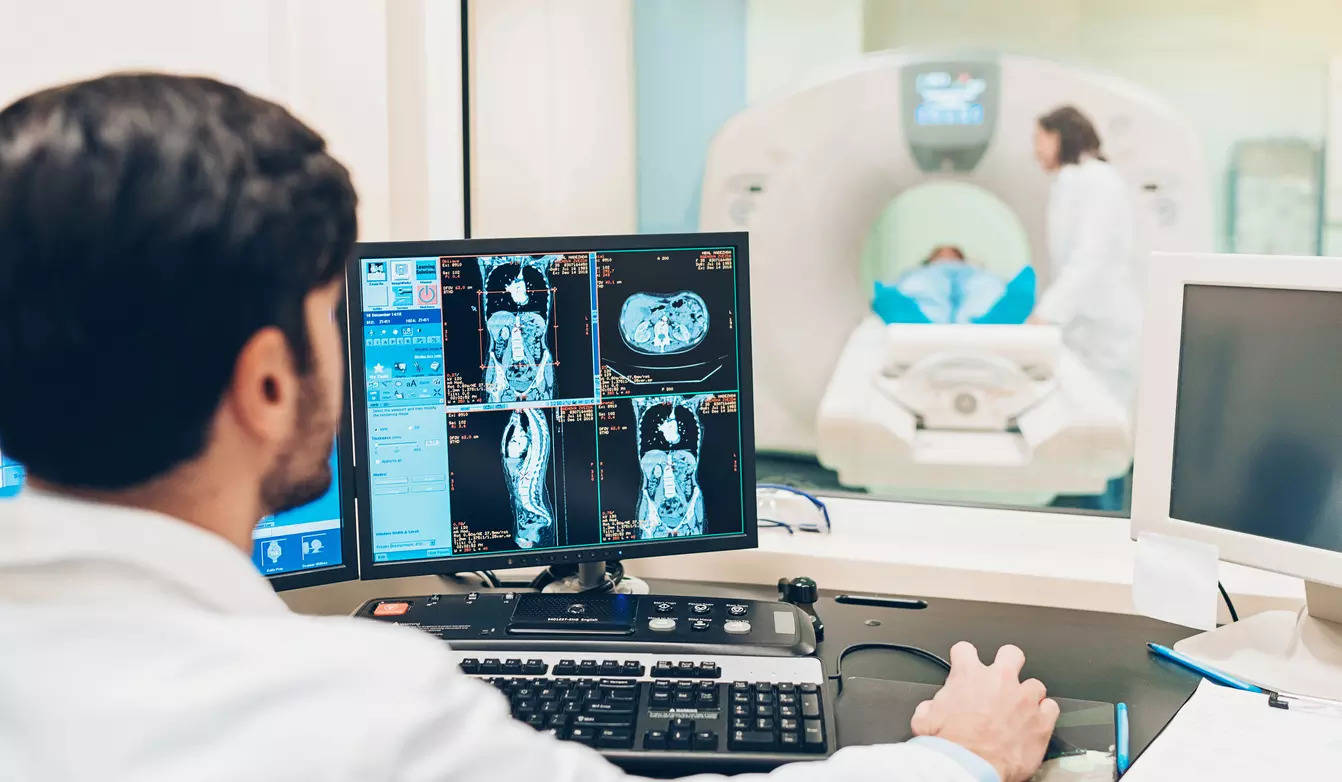- Hospitals
- 3 min read
At AIIMS Delhi, patients stare at 3-year waitlist for MRI scan
Each day, about 15,000 patients visit the outpatient department at AIIMS. Of these, roughly 10% require diagnostic imaging procedures, such as ultrasound, X-ray and MRI scans. The waiting period for these procedures varies significantly, with numerous patients receiving appointment dates ranging from six months to three years ahead.
Recently, a 52-year-old Joydip Dey, who was referred to AIIMS for treatment for his right leg injury at the orthopaedic OPD, was given an appointment for an MRI (magnetic resonance imaging) scan on Sept 7, 2027 (TOI has seen a copy).
Insiders acknowledge that this extended waiting period is not unique, as numerous other patients encounter similar delays in their appointments for MRI scan and other imaging procedures.
Each day, about 15,000 patients visit the outpatient department at AIIMS. Of these, roughly 10% require diagnostic imaging procedures, such as ultrasound, X-ray and MRI scans. The waiting period for these procedures varies significantly, with numerous patients receiving appointment dates ranging from six months to three years ahead.
Dey said being a BPL (below poverty line) patient, it is impossible for him to seek treatment at a good private hospital in Delhi-NCR, where an MRI scan can cost anything between Rs 18,000 and Rs 25,000.
"I don't have that kind of money. I can't even pay Rs 4,000-5,000," he said, adding that during his last visit to AIIMS Delhi on Nov 9 this year, the OPD doctor, after finding out that MRI scan was scheduled after three years, insisted that he must get it done immediately even if it is in a private hospital. "I don't know what to do. I have exhausted all my options. So, I stopped the treatment," he told TOI.
AIIMS offers MRI diagnostic services at affordable and economical rates, typically ranging between Rs 2,000 and Rs 3,000.
In 2022, Dr M Srinivas, the institute's director, issued instructions to ensure round-the-clock operation of all MRI machines. This directive aimed to facilitate scans for both inpatients and outpatients within the hospital premises, preventing treatment delays caused by extended MRI waiting times. He also emphasised that "the number of appointments for MRI will be increased to reduce the waiting list".
Prof Rima Dada, AIIMS media cell in-charge, said the hospital categorises patients based on priority levels. Emergency patients receive instant care, including immediate access to X-ray, ultrasound, or CT and MRI scans. The second tier comprises inpatients who typically wait about four days for MRI scans. Clinician-referred outpatients who require urgent MRI scans constitute the third category, with waiting periods ranging from two weeks to one month, designated as urgent OPD cases.
The hospital also manages a considerable number of non-urgent OPD patients. Although they need medical attention, these persons present non-critical conditions. They represent a large portion of the daily volume of 15,000 patients, often seeking diagnostic imaging for conditions such as back pain or leg pain.
However, a senior doctor at the radio diagnosis department said a three-year waiting period was "impractical". To address the challenge, the hospital is likely to implement a fully digital appointment system with defined cut-off periods, eliminating indefinite waiting times, he added.



COMMENTS
All Comments
By commenting, you agree to the Prohibited Content Policy
PostBy commenting, you agree to the Prohibited Content Policy
PostFind this Comment Offensive?
Choose your reason below and click on the submit button. This will alert our moderators to take actions